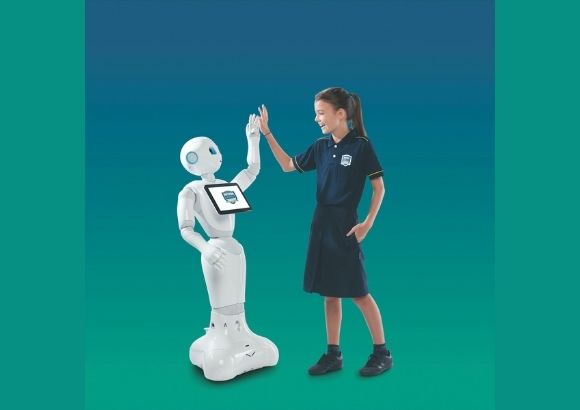This School Is Embracing Change In All Its Forms
 Schooladvisor Team
Schooladvisor TeamWatch our exclusive interview with Ms. April Peters, the Principal of Sri KDU International School Klang to learn more about the Microsoft Showcase school.

A brand-new addition to the international school scene, Sri KDU International School Klang is the first and only school in Asia dedicated to nurturing students to become the digital leaders of tomorrow. Sri KDU Klang is also the first Microsoft flagship school in Southeast Asia and a Microsoft Showcase school.
We sat down (virtually) with Ms. April Peters, Principal, Sri KDU International School Klang to talk about what digital leadership looks like in her school, what it means to be a Microsoft partner and what she wants her students to leave with when they graduate.
There are a lot of definitions on the Internet about digital leadership, but Ms. Peters wanted to be specific about what it means for her and her school. “A digital leader is someone who can embrace, leverage and manage innovation. Whether that’s technological, or digital innovation. That is the essence of what my school is all about.” To her, it’s about managing change within themselves and/or an organisation.
This explains why the goal of nurturing digital leaders is truly the heart and soul of Sri KDU Klang. The school has a Digital Leadership Programme which is given considerable time within the classroom that spans from primary all the way to secondary school. Although Sri KDU is a Cambridge school, the programme is not just a programme, - the digital leadership being practiced here is really about the culture of the school.
“We’re looking at ways we can bring digital leadership into the delivery within our normal classrooms, whether that’s global perspective, phonics, English or Maths, because to me it can’t be separated. I’m a digital leader one minute, and then a normal academic learner the next — that doesn’t work. It’s part and parcel of the whole culture of the school,” said Ms. Peters.
Tapping Into The Best Global Expertise
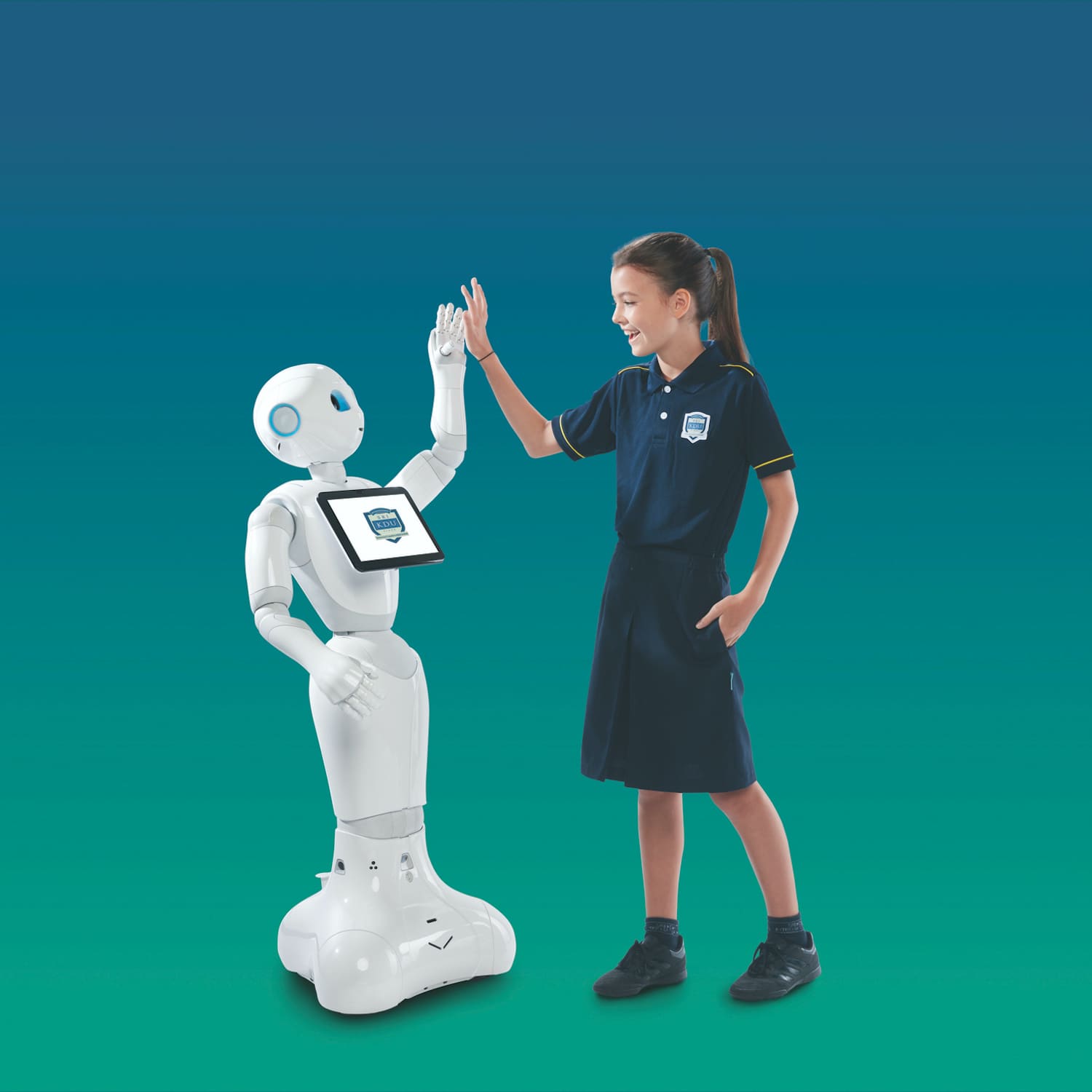
Being a partner of Microsoft, the school has access to top notch organisations such as the Digital Media Academy (DMA) which is from the Stanford tech Programme. Sri KDU International School Klang utilises some of their courses, which Ms. Peters informs us, are really grounded in technology and not only aligned with STEM, but also with the International Standards of Technology Education.
In addition to that, all Sri KDU International School Klang teachers are 100% Microsoft Innovative Educators (MIE). This means they can log in (to Microsoft-certified training) anytime and upskill themselves. They’re currently working on their Microsoft badges and are ready to build students to become digital learners.
Parents and students in turn, get a fully-fledged curriculum that is future-proofed, and will be constantly updated, thanks to Microsoft’s commitment to the school.
It is clear that Sri KDU International School Klang’s Digital Leadership Programme is not something that the school is making up as they go along. Still in its infancy, it is a building and moving force and likely to change as they adapt it to suit the school’s needs and goals.
Outside the classroom, Sri KDU International School Klang provides leadership opportunities. Ms. Peters tells us that she already has ‘digital champions’ in the making; these are students who have been trained with 3D printers, who will then share their knowledge and skills with other students and teachers.
Bringing Tech To Life With Real World Experiences
However, the school can’t develop the programme alone. Ms. Peters understands the importance of bringing people into the school with real-life experiences. She’s establishing relationships with professors and deans who will come in and talk about their current research. The school will host their version of TED talks (Tech Talks) and bring in industry leaders and entrepreneurs. “I really like the entrepreneur vibe at this particular moment in time,” she says endearingly.
She tells us about a man who’s going to talk about his work on Adobe Illustrator, how he’s using it now and how it will likely be used in the future. He’ll also let her students know how they can get involved and develop their skills.
But it’s more than just technology. Ms. Peters stressed on the fact that it’s not only that students embracing technology, but being able to take it wherever they want to, whether it’s into the law, education, public service etc.
“It’s understanding where technology plays that role. It’s not just one thing we’re doing, it’s the whole thing around the child leading down this pathway of digital leadership,” she said.
What truly makes Sri KDU International School Klang stand out amongst other tech-forward schools isn’t the programme itself, or the tools that are used. It’s their goal of building a mindset of being future-ready.
According to Ms. Peters, every school really should be thinking this way, otherwise it’s a huge disservice to all students. With Sri KDU International School Klang, it’s really about how they’re doing it which makes a huge difference.
It’s not enough to have a lesson here and there as part of the curriculum, or doing digital leadership as an after school programme. At Sri KDU International School Klang, they’re building a whole culture revolving around technology immersion and the digital world.
Preparing Students To Deal With Adversity
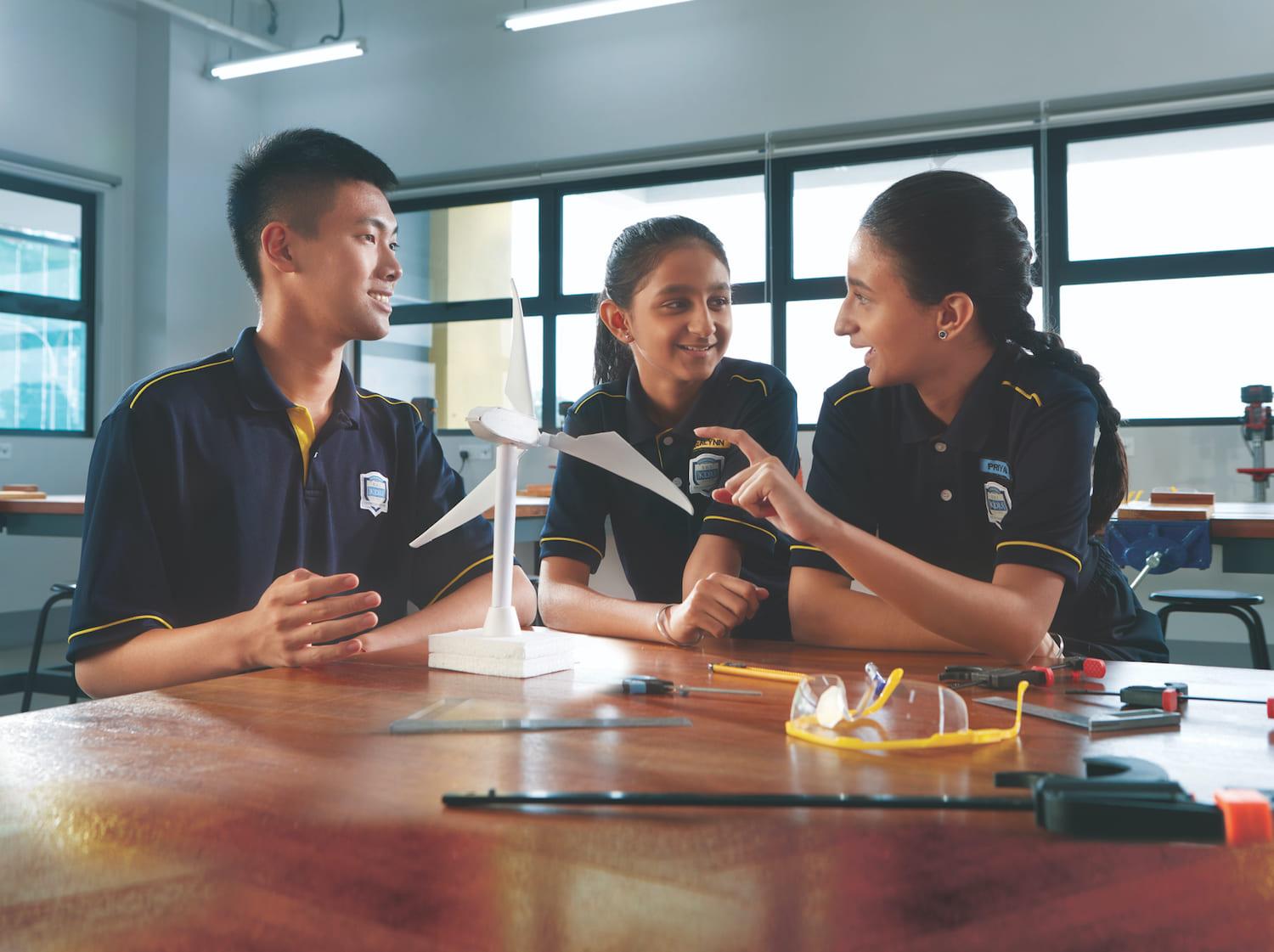
A principal component around creating digital leaders lies in embracing the uncertainty of our time. The first step is admitting that no one knows what’s going to happen in 20 years. It is common knowledge by now that students of today will be working in jobs that don’t exist today.
How do you even prepare for that? The answer lies in building up a student's capacity for adversity and change.
“We need to think in a very different way. We know that technology is going to expand, change and develop, so that is, in a way, the one constant that’s going to happen. We need to make sure that our students understand that, so that they have a mindset that’s ready for change. That they will know how to deal with change,” shared Ms. Peters.
Alongside it’s impressive attention to the digital world, Sri KDU International School Klang operates 16 habits of the mind which are actually attributes of the most successful people. These attributes, in short, are designed to solve problems. Adversity in itself, is a problem, according to Ms. Peters and when dealing with adversity, one needs to problem-solve and come through it. That is the kind of growth mindset that Ms. Peters wants to instill in the students of Sri KDU International School Klang.
Ms. Peters has a clear vision for her school and what she wants her students to leave with:
“My vision is to create digital leaders - they’ve got that understanding of what the digital world can do for them and what they can do within the digital world. What I want them to leave with is knowing who they are, and being confident as a person. I want them to be proud of who they are as a person. Digital leaders who have the humanity of who they are,” she said.
Growing Through Challenges and Change
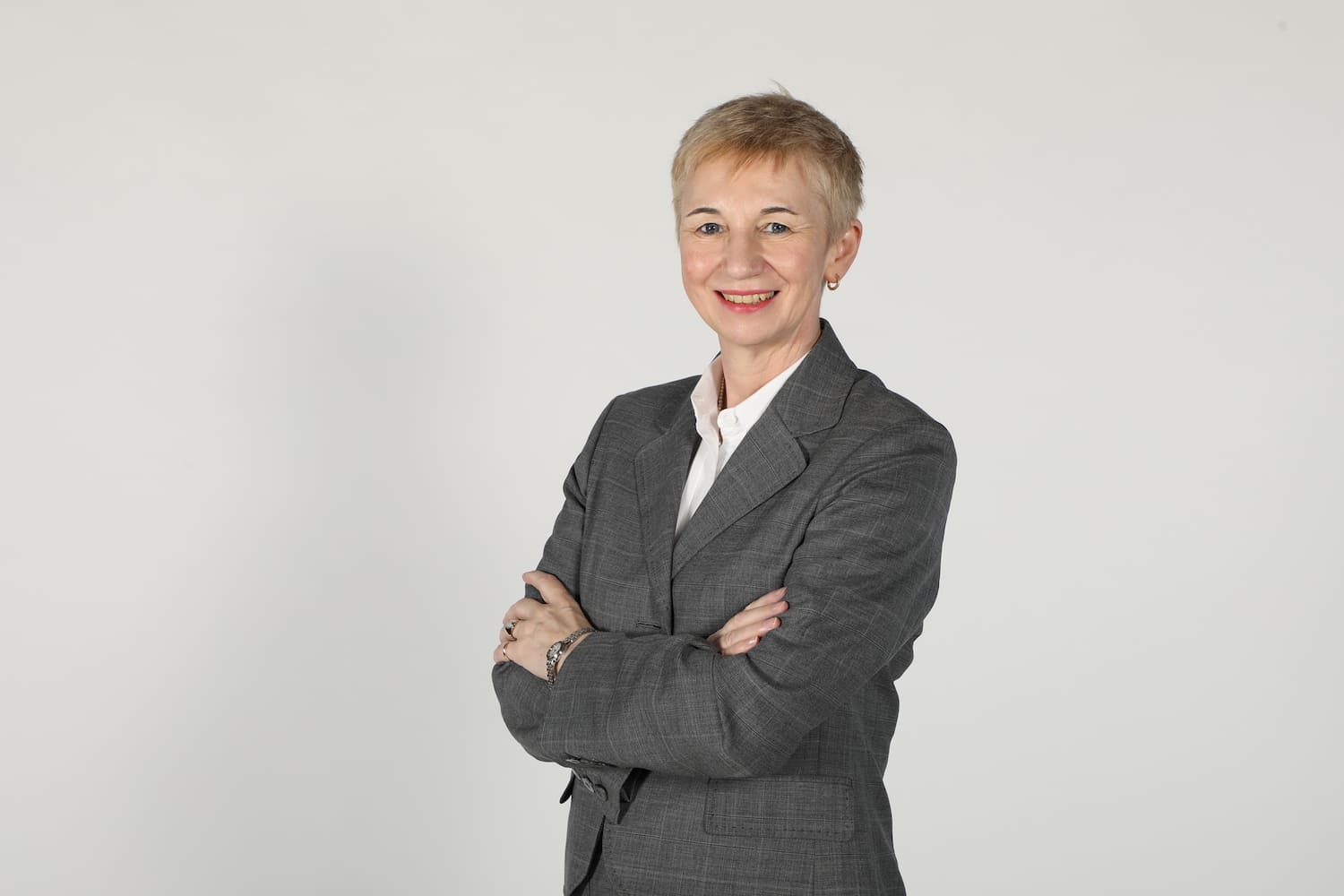
Ms. Peters sees herself as a glass half-full kind of person who sees any adversity as an opportunity. She hopes that her students will inherit this same mindset.
As someone who sees teaching as a calling and part of her identity, Ms. Peters has gone through her fair share of adversity. Having worked in some tough schools in the UK, she has had the opportunity to be both in academics and the pastoral side of things. She has observed how the environment around a child can shape and influence their behaviour.
It was when she was looking for a change that she landed the role of founding VP at Sri KDU Kota Damansara. She returned to the UK after that to immerse herself in pedagogy and took the time to train teachers-in-the-making. When she returned to Malaysia, she was offered the role at Sri KDU International School Klang, which really was, in her words: the pinnacle of her career. It didn’t take much for her to say yes, because she very much feels like she’s a part of the Sri KDU family.
Students Nurtured Towards Excellence
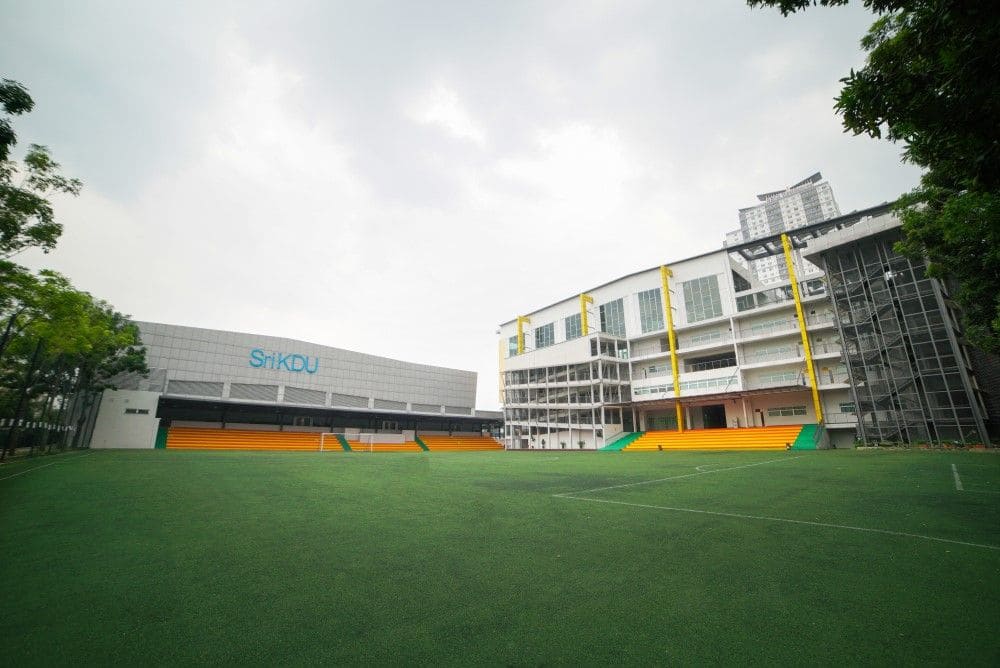
Coming from the Damansara campus, she still believes in the vision of “Transforming lives through education.” While there is a push with regards to academic excellence, there is also the underpinning atmosphere students are cared for.
“I will challenge our students to be the very best they can be, but I will do that within a caring environment. It was something that was established in Damansara, and I will certainly protect that strongly here in Klang,” she emphasised.
When she was asked what she might do differently at the Klang campus, she replied that she wouldn’t change very much of it. She really enjoys the family feel that surrounds Sri KDU. The only change would be the strong focus on the digital leadership aspect. She shares that all the Sri KDU schools are tech-forward, but there’s a slightly stronger emphasis here in Klang. They plan to share this culture with the wider group of schools.
Having been at various different schools in her time, Ms. Peters can tell immediately what sets Sri KDU apart.
“We really do operate from the basis of family and making sure we look after each other and share our experiences for the betterment of everybody. I haven’t experienced that in all my schools, if I’m absolutely honest,” she said with a smile.
Some schools operate just like a business, almost “like a factory”. Ms. Peters promises that won’t be the case as long as she’s holding her post at Sri KDU International School Klang.
“The child being at the centre, making our choices and decisions around that child and making sure we give them the best opportunities that we can within an educational setting. Also, supporting them and challenging them to be the best people they can be,” she shared.
While Sri KDU International School Klang places a strong emphasis on digital leadership, they’re also focused on the child here and now. For Ms. Peters, that means making sure they feel cared for and safe. If they can feel those two things, she strongly believes that their learning can expand.
Her parting advice to other teachers who are going through the pandemic is to have a mindset that no one is in control over everything at all now.
“Don’t be afraid to say: this is going to be hard, it’s going to challenge us. Be ready to change. When the time is right, you will need to react, to make sure that your students are doing the best they can, and also your staff. A school is not just about the students, it’s about the whole community. If one part isn’t working quite right, the other part doesn’t,” she concluded.
